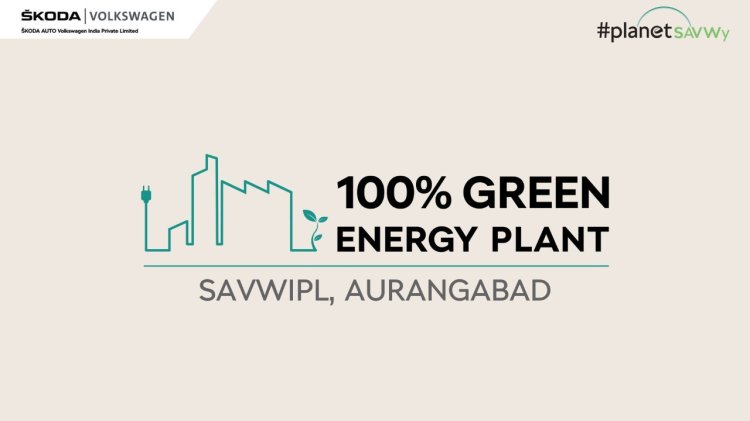Skoda VW India’s Aurangabad facility has transitioned to 100% ‘green’ energy, well ahead of its 2025 target. With this achievement, ŠKODA AUTO Volkswagen India Private Limited (SAVWIPL), which manages the Indian region of five Volkswagen Group brands – ŠKODA, Volkswagen, Audi, Porsche, and Lamborghini – has taken another significant step towards fulfilling the Group’s goTOzero mission. The facility received its Green Energy Certificate from Maharashtra State Electricity Distribution Company Limited (MSEDCL).
Commenting on the milestone, Piyush Arora, Managing Director and CEO of ŠKODA AUTO Volkswagen India Private Limited said:
Sustainability is a key pillar of the Group’s corporate strategy. It is also a cornerstone of our manufacturing processes. In the Volkswagen Group, ‘goTOzero’ is not only a roadmap for effective climate protection, it is also an integral strategic initiative towards sustainable mobility. We take a holistic approach to decarbonisation – from production through service life to recycling. We are enormously proud of achieving 100% Green Energy Certification for our Aurangabad facility well in advance of the target date. This feat moves us closer to our goal of achieving carbon neutrality in our manufacturing operations by the second half of the decade and motivates us to forge ahead with our Green Future initiatives.
Earlier in 2018, SAVWIPL’s Aurangabad Plant increased its capacity usage of ‘green’ energy and commissioned a 980 kWp rooftop solar power plant to meet 40% of its annual energy requirement. By replacing the external energy supply with renewable energy from MSEDCL, SAVWIPL’s Aurangabad Plant has become the first automotive facility in Aurangabad to be certified as a Green Energy Plant by MSEDCL.
With this transition to ‘green’ energy, the Aurangabad plant will achieve an approximately 48% reduction in CO2 every year. As part of its ‘goTOzero’ mission, the VW Group aims to become a carbon-neutral company by 2050. The Group is consistently focused on its carbon-neutrality goals across the entire global supply chain and product life cycle.


No comments:
Post a Comment